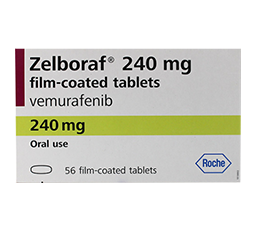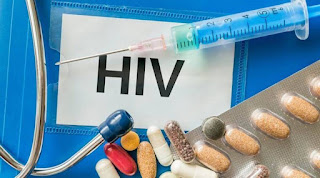ZELBORAF (VEMURAFENIB) what is ZELBORAF Used for?
What is ZELBORAF approved for?
ZELBORAF is a medicine used to treat a type of skin cancer
called melanoma that has spread to other parts of the body or cannot be removed
by surgery, and contains a certain type of abnormal "BRAF" gene. Is.
Zelboraf is not used to treat melanoma with the normal BRAF
gene.
Your healthcare provider will perform a test to make sure
ZELBORAF is right for you.
ZELBORAF is a prescription medicine used to treat a type of
blood cell cancer called Erdheim-Chester disease (ECD), which can affect the
body's tissues and organs, and includes a certain type of abnormal
"BRAF" "Gene is there.
It is not known whether Zelboraf is safe and effective in children under 18 years of age.
What is the most important information I should know about
Zelboraf?
ZELBORAF can cause serious side effects, including:
New cancer risk. ZELBORAF may cause certain types of skin
cancer called cutaneous squamous cell carcinoma (cuSCC) and keratoacanthoma.
New lesions of melanoma have occurred in people taking ZELBORAF. ZELBORAF may
also cause another type of cancer called non-cutaneous squamous cell carcinoma
(non-QSCC). Talk to your healthcare provider about your risk for these cancers.
Check your skin and tell your healthcare provider right away
about any skin changes, including:
- · a new wart
- · a sore or red bump in the skin that bleeds or does not heal
- · change in size or color of the mole
Your healthcare provider should examine your skin before
taking ZELBORAF, and every 2 months during treatment with ZELBORAF to look for
any new skin cancers. Your healthcare provider may continue to examine your
skin for up to 6 months after you stop taking ZELBORAF.
Your healthcare provider should also check for cancers that
may not be on the skin. Tell your healthcare provider about any new symptoms
you get while taking Zelboraf.
Other blood cancers have occurred in some people with
Erdheim-Chester disease (ECD), including those taking Zelboraf. If you have
other blood cancers and take ZELBORAF for ECD, your healthcare provider will
monitor your blood cancer through regular blood tests.
Before taking ZELBORAF, tell your healthcare provider about
all of your medical conditions, including if you:
- · Have a heart problem, including a condition called Long QT syndrome
- · have liver or kidney problems
- · have received or are planning to have radiation therapy
- · have been reported to have low levels of potassium, calcium, or magnesium in your blood
- · Are pregnant or plan to become pregnant. Zelboraf may harm your unborn baby.
Women who are able to become pregnant should use effective
birth control during treatment with ZELBORAF and for 2 weeks after the last
dose of ZELBORAF.
Breast-feeding or planning to breast-feed. It is not known
whether Zelboraf passes into your breast milk. Do not breast-feed during
treatment with ZELBORAF and for 2 weeks after the last dose of ZELBORAF.
Tell your healthcare provider about all the medicines you take, including prescription and over-the-counter medicines, vitamins, and herbal supplements.
What should I avoid while taking Zelboraf vemurafenib?
Avoid sunlight during treatment with ZELBORAF. ZELBORAF can
make your skin sensitive to sunlight. You can burn more easily and get a severe
sunburn. To help protect against sunburn:
Wear clothing that protects your skin, including your head,
face, arms, hands and feet, when you go out.
Use lip balm and broad-spectrum sunscreen with SPF 30 or
higher.
What are the possible side effects of Zelboraf?
You could have an allergic reaction while taking ZELBORAF,
and it could be serious. If you get any of these allergy symptoms, stop taking
Zelboraf and get medical help right away:
- · rash or redness all over your body
- · trouble breathing or swallowing
- · swelling of the face, lips, or tongue
- · sore throat or hoarseness
- · feel faint
- · fast heartbeat
Serious skin reactions. If you get a skin rash with any of
the following symptoms, stop taking Zelboraf and call your healthcare provider
right away, as you may have a serious skin reaction:
- · blisters on your skin
- · sores or sores in your mouth
- · peeling of your skin
- · fever
- · redness or swelling of your face, hands, or the soles of your feet
- · your heart's electrical activity




Comments
Post a Comment